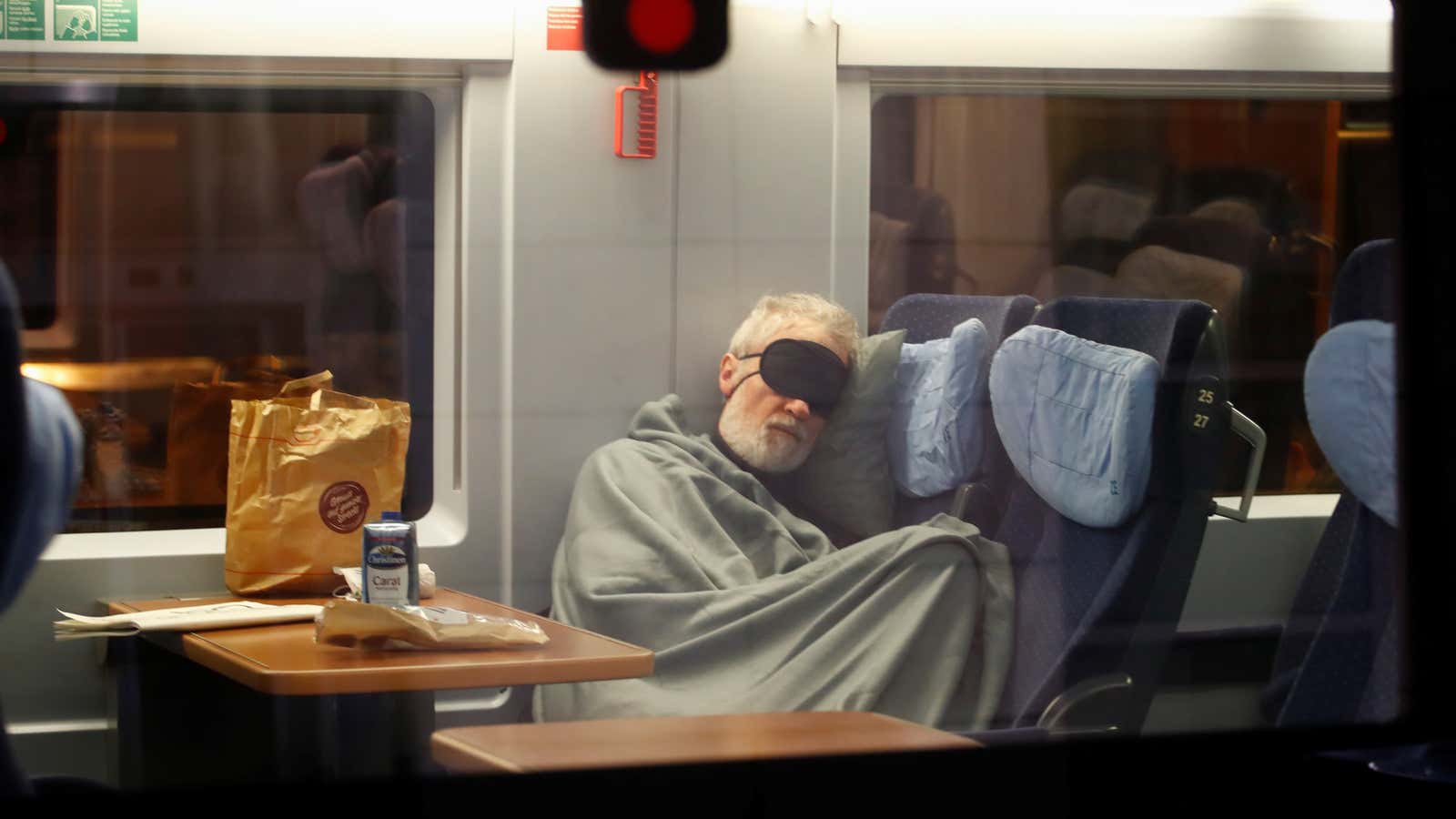The relationship between job loss and health is well understood. Researchers have documented increased obesity, heart disease and hypertension, and mental illness associated with joblessness, particularly long-term unemployment. Less studied, however, is the relationship between unemployment and sleep.
In a new paper (pdf), Danny Blanchflower, a Dartmouth economist, and Alex Bryson, a social scientist at University College London, document the impact of joblessness on sleep. Perhaps predictably, the unemployed sleep less than the overall population, likely a result of anxiety and worry. About 13% of the newly unemployed, for example, report getting four hours of sleep or less a night.
But the study authors discovered the unemployed also sleep more than normal, what social scientists call “long sleep“, which is associated with the use of anti-depressants and anti-anxiety medication, as well as illnesses such as lupus. Among the population unable to work—either because of health, family, or other reasons—9% report sleeping 10 or more hours per night, almost three times the rate of the general population.
Both under- and over-sleeping make it harder to find work, and can lead to a wide range of other health problems.
For their study, Blanchflower and Bryson primarily relied on data from the Behavioral Risk Factor Surveillance System, an annual survey of more than 400,000 adults in the US conducted by the Centers for Disease Control and Prevention. The survey doesn’t ask everyone the same questions every year, so the authors collated results from 13 years of survey data to include 2.5 million responses. The study was released as a working paper from the National Bureau of Economics Research, which means it hasn’t yet been peer reviewed.
Although the paper doesn’t draw on data from the current, pandemic-related unemployment crisis, the implications are clear. More than 13 million Americans remain unemployed, more than twice the number from a year ago, while another 7 million are outside the labor force but want to work, according to the US Bureau of Labor Statistics (pdf). The financial impact of their joblessness is enormous, and we’re just now beginning to understand the health effects as well.
